No content results match your keyword.
Content
You have successfully logged out.
Not registered yet?
Home care services
Treating people at home in their living rooms, instead of at the hospital, is an approach that can improve quality of life for many patients.[1,2] “People with severe or chronic diseases often suffer from depression and anxiety. They have the feeling that they are powerless and have little control over their life,” says Heike Spaderna, Professor for Health Psychology at the University of Trier. Being able to choose the treatment time and having more time for yourself and your family can make a big difference in terms of mental health.
Nowadays, more and more therapies are developed to the point that patients can administer them themselves, with assistance from competent professionals. B. Braun is developing various programs aiming to support this trend with the intention to offer safe and high-quality home therapy. These include home dialysis in Germany, home parenteral nutrition in selected European countries and at-home stoma care in Ireland.

Some patients might fear they will only receive second-rate treatment at home. This couldn’t be farther from the truth, as the experience from our home-treatment caregivers are encouraging.
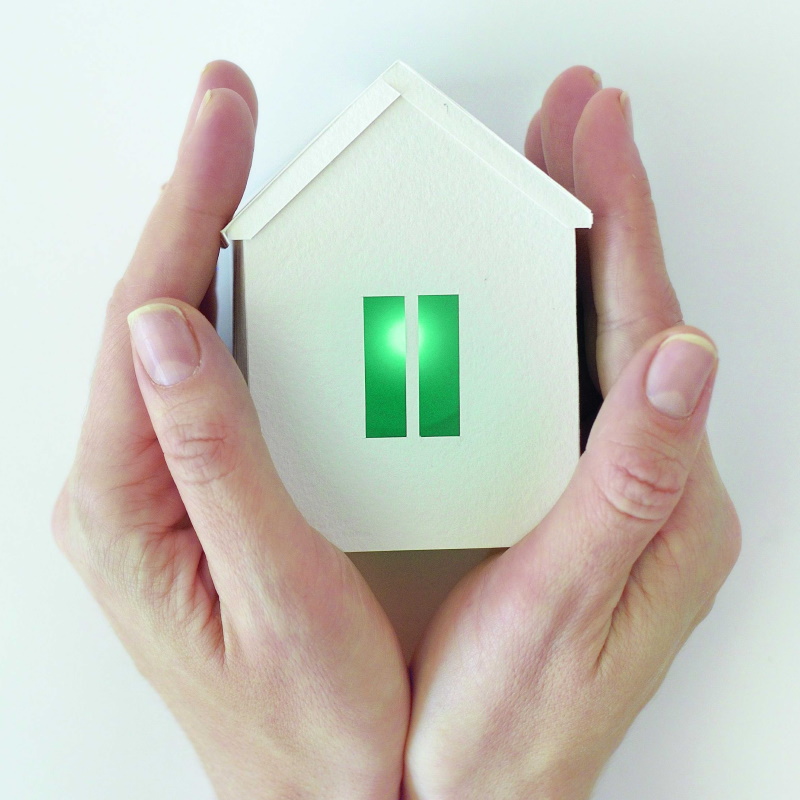
“A key point for successful treatment at home is the fact that the patients are not alone. Having family or friends to help out and competent caregivers to monitor the treatment is crucial.”

Dialysis therapy
Claudia and Matthias Hatscher have a special hobby: the married couple in their forties loves Marvel films. They used to go to the movies frequently together to watch 'Iron Man' or 'The Incredible Hulk'. They also visited Cologne’s gaming convention Gamescom every year.Starting in 2018, this became almost impossible: After a heart attack, and due to various pre-existing conditions, Matthias’s kidneys grew weak. A kidney transplant failed, and he needed dialysis.
“Before something like this happens, you just can’t imagine what it means,” says Claudia Hatscher. More than anything, dialysis means lost time. Usually, patients must visit a dialysis center at least three times a week – and they are not able to choose their appointments. Once there, patients must wait four to six hours before the machines have cleansed their blood of toxic substances. In healthy people, this is a process that is handled by the kidneys. If dialysis patients must work for a living, their life often consists solely of dialysis and work. “And traveling back and forth,” adds Claudia Hatscher. “A normal family life was no longer possible. Our three children had just entered adulthood, and we actually wanted to have more time for us again.” Instead, last year, the couple from Baesweiler were running on empty.
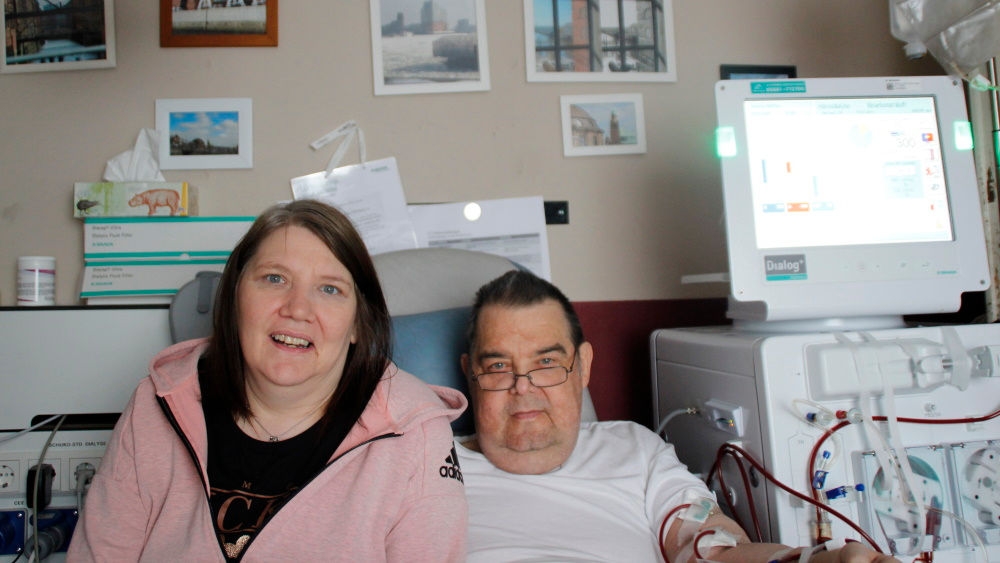
But then the Hatschers heard about the possibility of using dialysis at home and got in touch with B. Braun. A medical team handled the apartment modifications for the equipment, while the Hatschers participated in intensive training courses over several weeks. Matthias Hatscher now purifies his blood at home, with help from his wife and a mobile team of caregivers – in a room rebuilt specifically for this purpose.
Claudia and Matthias Hatscher order all the necessary materials using a special app. They receive regular visits from the B. Braun Home Service for equipment maintenance and support. Their dialysis machine is connected to the internet and it transmits all the vital data, such as the patient’s weight or blood pressure, to the doctors at the dialysis center. If there are any problems or discrepancies, the Hatschers can call their dialysis trainer at B. Braun. If this person is not available, a B. Braun service hotline provides round-the-clock reliability. Matthias drives to the dialysis center near Erftstadt (in the Cologne region) only once a month for a checkup.
The majority of dialysis patients are no longer able to work. Their bodies are too exhausted from the dialysis procedure, which often must be carried out as quickly as possible. Matthias Hatscher has been able to continue with his job. He works full-time as a business clerk.

“Home dialysis has major advantages, even from a medical perspective. People who receive their treatment at home are healthier and have better results than patients in dialysis centers.[3,4,5]”
The reason for this is clear: in the dialysis center, patients are typically dialyzed three times a week with a one day longer intervall at the weekend. As a result, toxins in the blood rise between treatments, especially during the long break over the weekend. At home, patients can undergo dialysis more often or for a longer period, which shortens the pause in treatments, especially on the weekends. They can easily integrate dialysis into their daily lives. More time for dialysis is not only easier but also an option to reduce stress and feel less worn out.
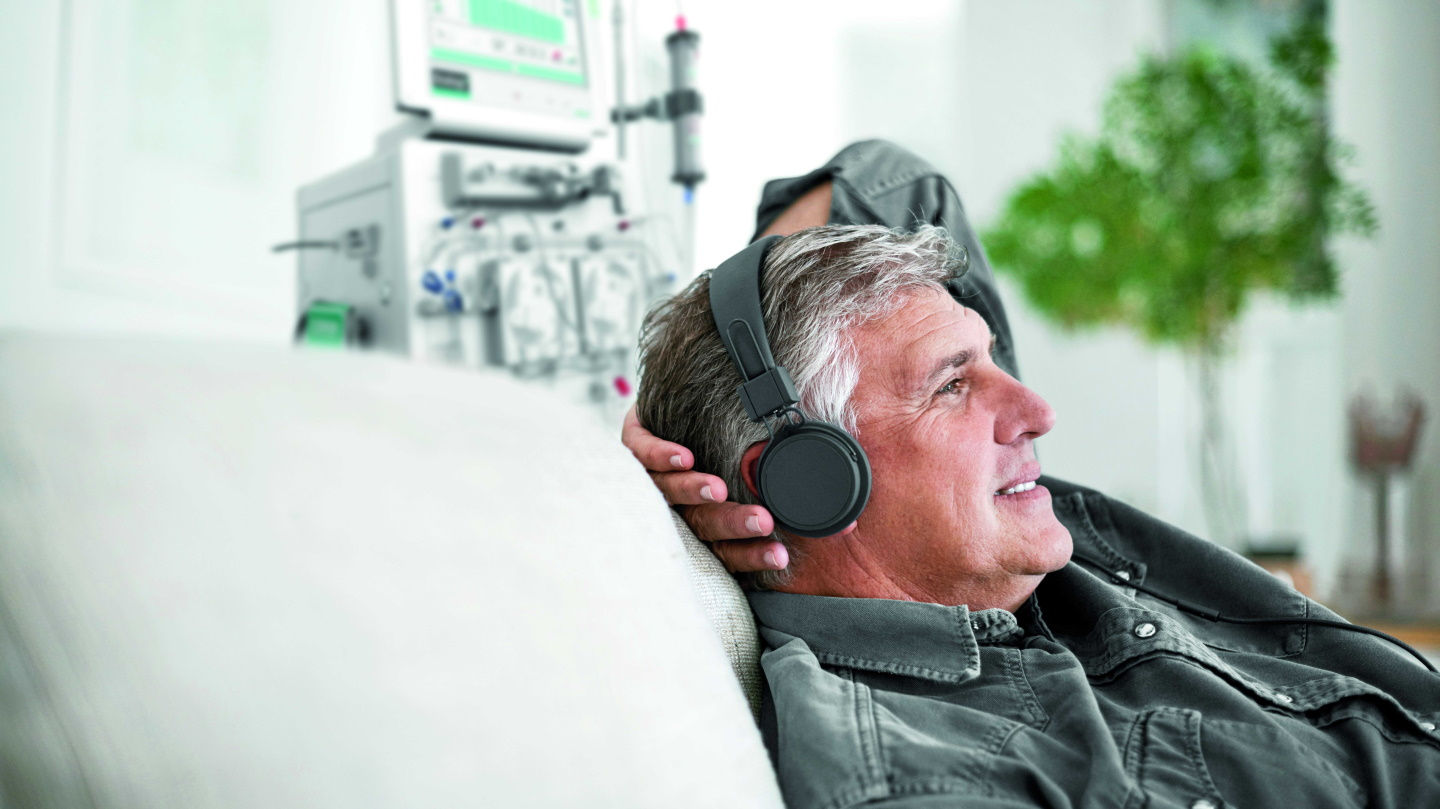
Home Parenteral Nutrition
B. Braun has over 20 years of experience in organizing and administering home care. It can be very complex to effectively implement follow-up care, especially when it comes to therapies that require intensive and highly demanding procedures.
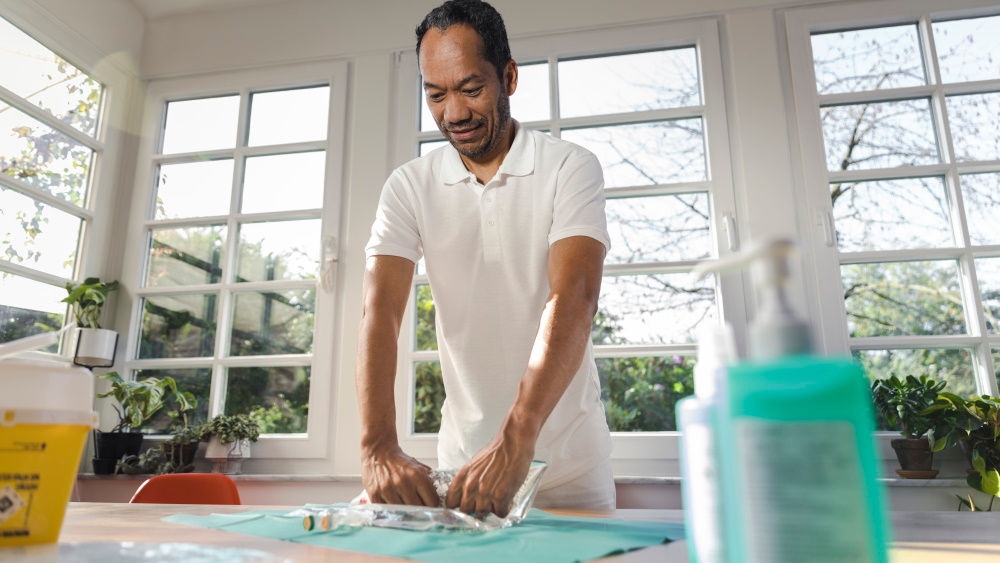
Medical and organizational know-how are needed as well as awareness of the legal requirements in order to effectively coordinate the interaction of all parties involved in providing care for the patient in the home setting. We support building a bridge between inpatient and outpatient care by providing assistance to hospitals in patient transfer and in organizing the management of care at home. It has been documented that good outpatient care management can help to reduce re-hospitalization rates.[6,7]
B. Braun has set itself strict guidelines to ensure proper levels of care for patients at home. B. Braun was one of the first suppliers in the industry to implement a complete quality management system for patient treatment at home. The everyday tasks involved in home enteral and parenteral nutrition – starting with the preparation of the nutrition container, followed by the attachment to the patient's access and finally the change of the bandages – are usually performed by selected nursing services. However, with our support the patients themselves or their relatives can also be trained to undertake these tasks.
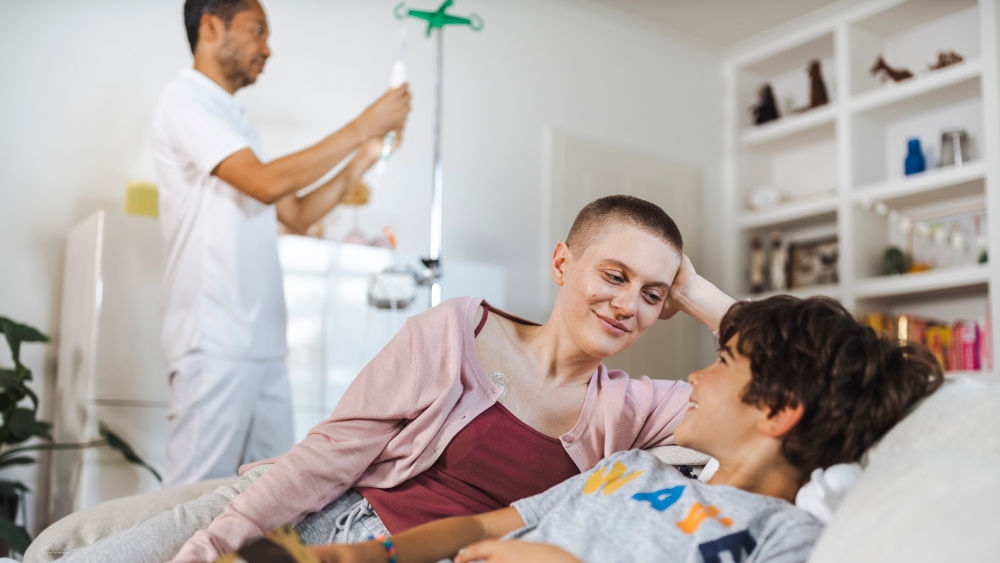
Parenteral and enteral nutrition can even be combined with mobility and being on home artificial nutrition does not exclude patients from traveling. This can be an additional improvement in their quality of life.
References
Your feedback matters! Participate in our customer survey to help us enhance our website, products and services. Thank you for your support!